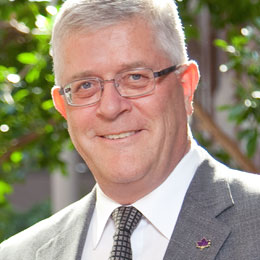 Laurier has received some excellent news. After a rigorous selection process, the university has been named a Changemaker Campus by Ashoka, an international association dedicated to making the world a better place through social entrepreneurship and social innovation.
Laurier has received some excellent news. After a rigorous selection process, the university has been named a Changemaker Campus by Ashoka, an international association dedicated to making the world a better place through social entrepreneurship and social innovation.
This prestigious designation is shared by just 37 universities around the globe, and only one other in Canada. Laurier and its fellow Changemaker Campuses are part of “Ashoka U,” a global network within Ashoka that strives to foster a culture of social innovation in higher education.
At the heart of Ashoka is the belief that individuals and organizations can be “changemakers” — agents for creating positive change in the world.
The Ashoka approach is built on two related concepts: “social entrepreneurship” and “social innovation.” Social entrepreneurship takes practices that are often associated with business — innovation, measuring results, developing systems that can be scaled or extended across multiple locations and situations, and financial sustainability — and applies them to solve social problems and contribute to the public good. In a similar way, social innovation is the process of looking for new strategies and novel approaches to addressing social needs.
Anyone familiar with Laurier will quickly recognize how closely these concepts align with our university’s heritage and ethos.
Laurier’s guiding statement — inspiring lives of leadership and purpose — was written based on an extensive consultation with the Laurier community and after a careful examination of the university’s long history. In just six words, it captures the essence of what Laurier strives to do as an organization dedicated to higher education, community engagement and the well-rounded development of individuals.
For years, Laurier has pursued an intentional approach to how we integrate academic excellence, experiential learning, and co-curricular activities.
For years, Laurier has pursued an intentional approach to how we integrate academic excellence, experiential learning, and co-curricular activities. The efforts of many in this regard have led to an impressive array of innovative learning initiatives: co-op programs, community service learning, co-curricular records, community engagement activities, leadership programming, and an increased emphasis on entrepreneurship, social entrepreneurship and social innovation.
With these latter three, Laurier has received generous support from a number of partners, including the Schlegel family, the J.W. McConnell Family Foundation, and the Wilfrid Laurier University Alumni Association.
We have signaled the importance of social entrepreneurship and social innovation by referencing them in our 2015-20 Strategic Academic Plan and in our current Strategic Mandate Agreement with the Ontario government. It bears repeating that these concepts are not new to our university.
A shining example of our culture of social entrepreneurship is alumnus Mike Morrice. Mike’s interest in social change was encouraged and supported during his time at Laurier. Shortly after graduating in 2008 with a double degree in business and computer science, he launched Sustainable Waterloo Region, a not-for-profit that guides companies toward measuring and reducing their carbon emissions. He extended the concept to other communities with the creation of Sustainability CoLab, an organization that supports a network of similar initiatives across Ontario and has ambitions to grow even further afield. In 2012, Mike was named an Ashoka Fellow in recognition of his passion for social change and his leadership in social entrepreneurship.
As universities face increasing pressure to differentiate themselves from one another, I believe Laurier will succeed by building on its strengths — in particular, the ongoing and purposeful integration of academic excellence with experiential learning, social purpose and community engagement. The Ashoka Changemaker Campus designation is an international affirmation that Laurier is on the right path. It is also a powerful beacon that will help us continue to attract students, faculty and staff who want to make a real difference in the world.
Max Blouw President and Vice-Chancellor